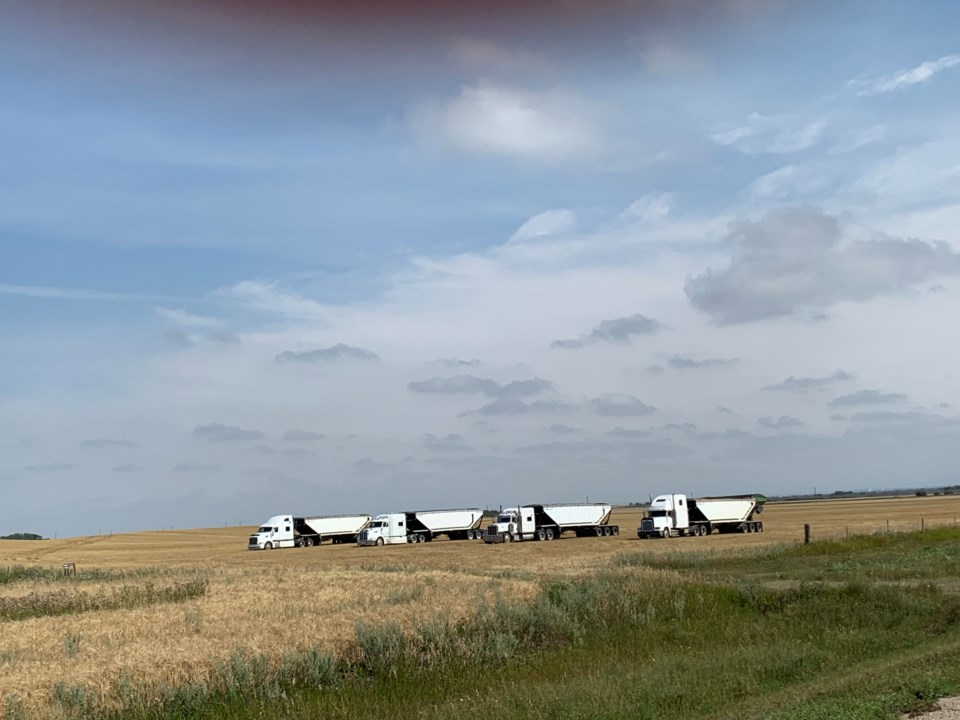ASSINIBOIA — Michaela Solomon, Communications SGI, says that in the last five years, 2019-23, there have been an average of 107 traffic collisions, involving farm equipment, resulting in 27 injuries and, sadly, three fatalities.
Thankfully in the statistics provided by SGI, it was noted there were no collisions involving farm equipment reported in Assiniboia in those five years.
Major contributing factors to these accidents included failure to yield to the right of way, improper turning and improper passing or lane use.
SGi outlines some things to keep in mind when driving around farm equipment:
Pass only when it’s safe to do so. Treat farm machinery like you would any slow-moving traffic and remember to be patient. Chances are the farmer is going to be on the road only long enough to move that equipment from one field to another.
In addition to being slow-moving, farm machinery can be deceptively wide and long. If you do decide to pass them on the highway, give yourself plenty of space to do so.
You’re more likely to encounter farm equipment on rural roads and those roads are narrower, so drivers have less space to manoeuvre around them. Keep that in mind and stay extra alert whenever you leave the pavement and hit the gravel.
Make sure the farmer can see you, too. The equipment operator is dealing with blind spots, so don’t follow too closely behind them and be sure not to merge in front of them too closely.
Anticipate where the farmer might be going. The machinery may not allow the operator to signal their intentions, so drivers will want to be sure they are not about to turn left into a field before pulling alongside to pass.
For farmers, there are rules dictating how, where and when farm equipment can be transported on certain designated highways. Equipment that travels slower than 40 km/h must be equipped with a rear/centre slow-moving-vehicle sign and machinery that extends more than 1.2 metres should be equipped with reflective devices to alert drivers. For more details, please consult from the Government of Saskatchewan.
To say that even if a collision doesn’t result in anyone getting hurt or losing their life, it could severely impact someone’s livelihood. No one wants to deal with a collision damaging a crucial piece of equipment when it’s most needed. As drivers, we can help them out by giving them a bit of space and plenty of courtesy whenever we see them on the road.
“Farm machinery is slow moving so you’ll find that you come up on it very quickly at highway speeds, so start slowing down as soon as you see it. You’re more likely to see farm machinery on grid roads, which are narrower and offer drivers less space to pass,” adds SGI.
The key to everyone’s safety is patience. A popular fact circulated on social media, and found on several American Ag sites states, “Following equipment at 20 miles per hour for two miles may seem like a lifetime, but it takes only six minutes of your time, which is about the same as waiting for two stoplights.”




